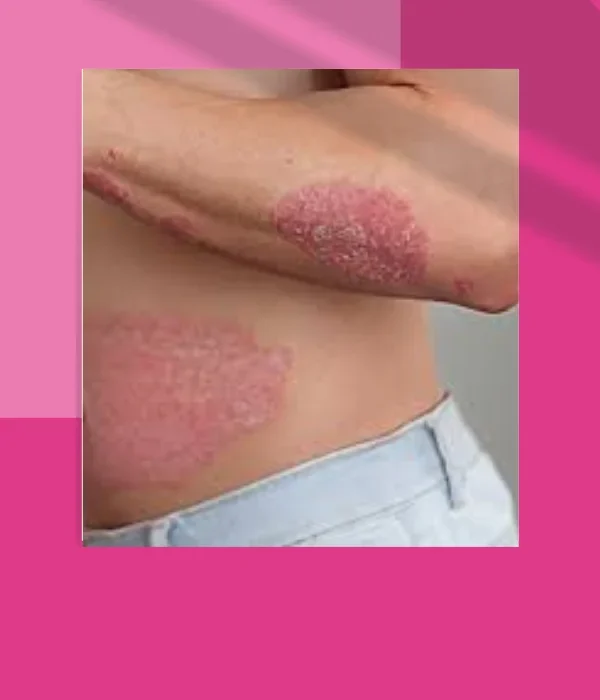Psoriasis: Get Ultimate Cure
Psoriasis is a chronic autoimmune condition that affects the skin. It is a condition that affects millions of people worldwide, and while there is currently no cure, there are many treatments available to manage symptoms and improve quality of life.

Psoriasis is a chronic autoimmune condition that causes the skin to become thick, red, and scaly. It can affect any part of the body, including the scalp, elbows, knees, and even the nails. It is a non-contagious condition, meaning it cannot be spread from person to person through physical contact.
The exact cause of psoriasis is unknown, but it is believed to be the result of a combination of genetic and environmental factors. Certain genes have been identified that are associated with psoriasis, and it is believed that an abnormal immune response triggers the condition.
Environmental factors such as stress, infections, and injuries to the skin can also trigger psoriasis symptoms. Additionally, certain medications, including beta-blockers and lithium, have been known to worsen psoriasis symptoms in some people.
There are several different types of psoriasis, each with its own unique symptoms and characteristics.
Plaque Psoriasis
Plaque psoriasis is the most common type of psoriasis, affecting about 80% of people with the condition. It causes thick, red patches of skin that are covered in silvery scales. These patches can be itchy and painful, and they often appear on the scalp, elbows, knees, and lower back.
Guttate Psoriasis
Guttate psoriasis is a type of psoriasis that is more common in children and young adults. It causes small, red, scaly spots to appear on the skin, usually on the arms, legs, and torso. It is often triggered by an infection, such as strep throat.
Inverse Psoriasis
Inverse psoriasis affects the skin in areas where it folds, such as the armpits, groin, and under the breasts. It causes smooth, shiny, red patches of skin that are often painful and itchy.
Pustular Psoriasis
Pustular psoriasis is a rare type of psoriasis that causes pus-filled blisters to appear on the skin. It can be painful and can cause fever, chills, and fatigue.
Erythrodermic Psoriasis
Erythrodermic psoriasis is a severe form of psoriasis that affects the entire body. It causes widespread redness and scaling of the skin and can be life-threatening if left untreated.
While there is currently no cure for psoriasis, there are many treatments available to manage symptoms and improve quality of life. The most common treatments include:
Topical Treatments
Topical treatments are creams and ointments that are applied directly to the skin. They can help to reduce inflammation and itching and can be effective in treating mild to moderate psoriasis.
Systemic Medications
Systemic medications are prescription medications that are taken orally or by injection. They work by suppressing the immune system and can be effective in treating moderate to severe psoriasis.
Light Therapy
Light therapy, also known as phototherapy, involves exposing the skin to ultraviolet light. It can be effective in treating mild to moderate psoriasis and is often used in combination with topical treatments.
Is psoriasis contagious?
No, psoriasis is not contagious. It is a chronic autoimmune condition that cannot be spread from person to person through physical contact.
What triggers psoriasis?
Psoriasis can be triggered by a variety of factors, including stress, infections, and injuries to the skin. Certain medications, including beta-blockers and lithium, have also been known to worsen psoriasis symptoms in some people.
Can psoriasis affect internal organs?
In rare cases, psoriasis can affect internal organs, such as the liver or kidneys. However, this is very uncommon and most people with psoriasis only experience symptoms on their skin.
Is there a connection between psoriasis and other health conditions?
Yes, psoriasis has been linked to other health conditions, including cardiovascular disease, diabetes, and depression. It is important for people with psoriasis to discuss their overall health with their healthcare provider and to manage any underlying health conditions.
When choosing a skin clinic for psoriasis treatment, it’s important to consider the following factors:
Experience and expertise: Veeha Skin Clinic has experienced and knowledgeable dermatologists, who specialize in treating psoriasis.
Treatment options: We offers a variety of treatment options, such as topical medications, oral medications, light & laser therapy, so that you can find the best treatment for your individual needs.
Personalized treatment plans: We work with you to develop a personalized treatment plan that addresses your individual needs and concerns.
Quality of care: We have prioritizes patient safety, USA FDA approved lasers and uses high-quality, evidence-based treatments.
Reputation and reviews: We have good reputation and positive reviews from previous patients.
Location and Accessibility: We have well-located and accessible clinic so you can easily attend appointments and receive ongoing treatment as needed.
By considering these factors, you can choose Veeha Skin Clinic for psoriasis treatment that best suit your individual needs and offers you effective and personalized psoriasis treatment.
Book Now
Make An Appointment
Consult with Rajkot leading Dermatologist & Cosmetologist, Dr. Pratik Siddhapura M.D Skin. He has many years of experience in treating PSORIASIS patients, he will evaluate your individual skin condition and discuss the treatment options with you. You may also send an Online consultation request by contacting us : https://veehaskinclinic.com/contact-us/. Our team will respond to your questions or appointment request as soon as possible.
Opening Hours
- 09.30 AM - 02.30 PM
- 04.30 PM - 08.30 PM
- Closed
Support
You can contact us through phone, whatsapp & email. Online video consultations are also available.

